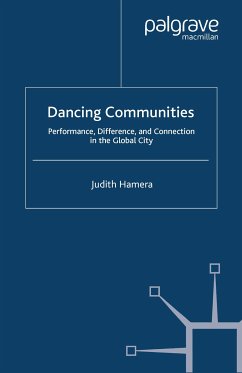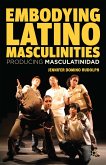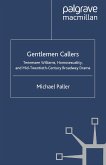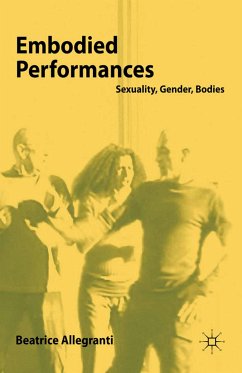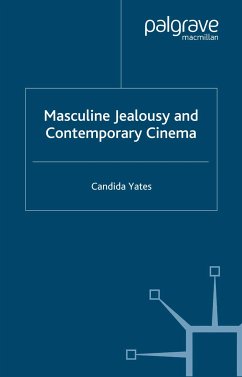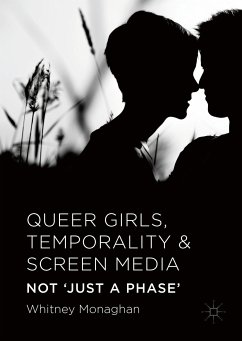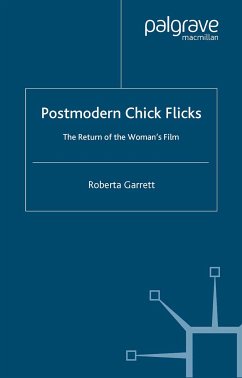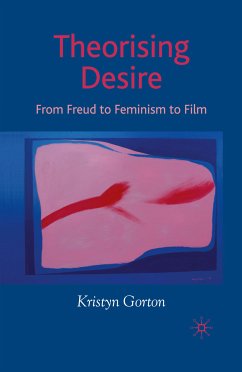Dieser Download kann aus rechtlichen Gründen nur mit Rechnungsadresse in A, B, BG, CY, CZ, D, DK, EW, E, FIN, F, GR, HR, H, IRL, I, LT, L, LR, M, NL, PL, P, R, S, SLO, SK ausgeliefert werden.
Hinweis: Dieser Artikel kann nur an eine deutsche Lieferadresse ausgeliefert werden.
'[Hamera] makes several prominent contributions to dance studies, and also to any scholarship interested in the relationship between community-building and the arts.' Theatre Journal
'As a practitioner of several disciplines...and as a resident of the global city wherein Hamera grounds her investigation, I recommend Dancing Communities not only as a text worth reading but, even more so, as a task worth rehearsing.' - Shakina Nayfack, Dance Research Journal
'There has been a longstanding belief by practitioners of community dance that participation in dance can be a force that can affect or change people's lives, usually for the better. This belief has wide currency, yet without much academic research to bolster it. Judith Hamera offers a unique and personal monograph that provides dance scholarship with a convincing argument, not only for community dance, but professional dance too.' - Sara Houston, Contemporary Theatre Review
'...an enviable synthesis of performance studies, dance studies, queer theory, critical geography, and cultural studies literature rendered in direct and purposeful prose...[and] an invaluable resource in teaching performance-centred research methods to graduate students... Dancing Communities is both beautiful and practical. The book is theoretically dense enough to reward re-reading, but written withsufficient clarity to give structure to a time-crunched graduate student's first pass through.' - David P. Terry, Text and Performance Quarterly
'This book deserves serious attention from dance and performance scholars. It is likely to influence the formulation of future studies that challenge understanding of the significance of a particular body mastering a technique.' - Theatre Survey

